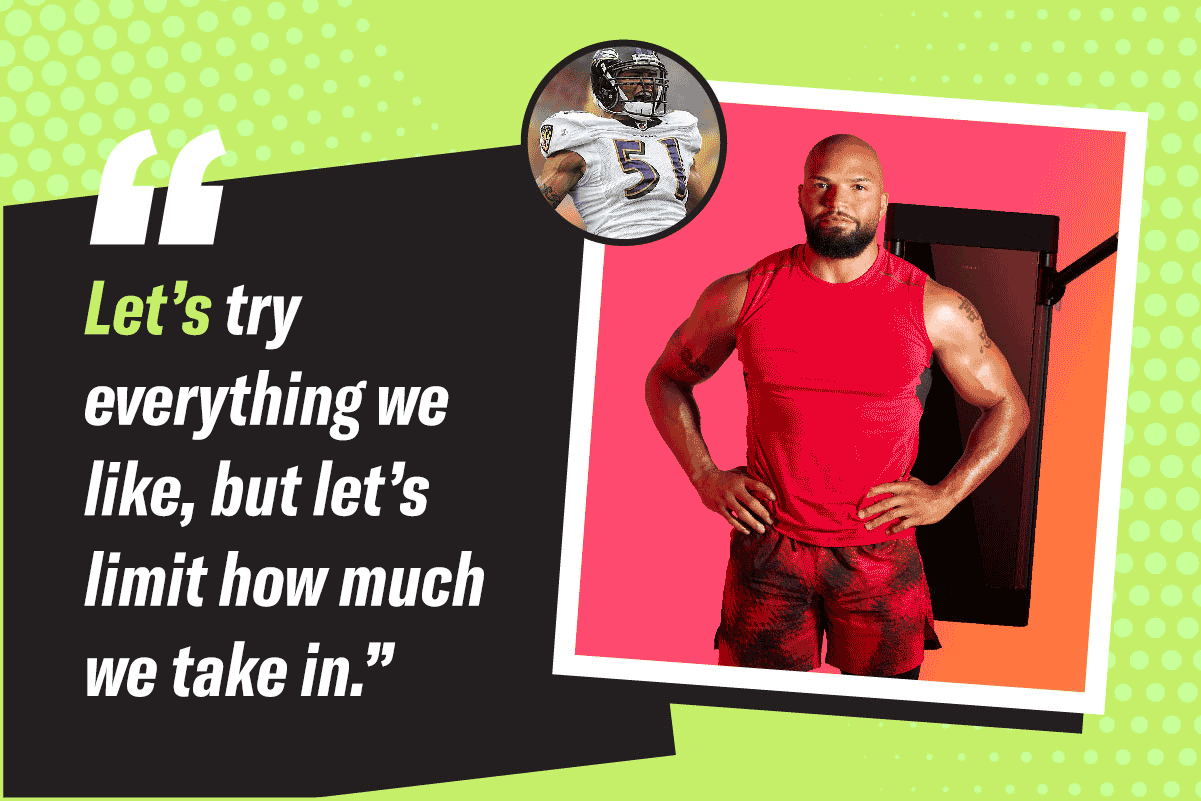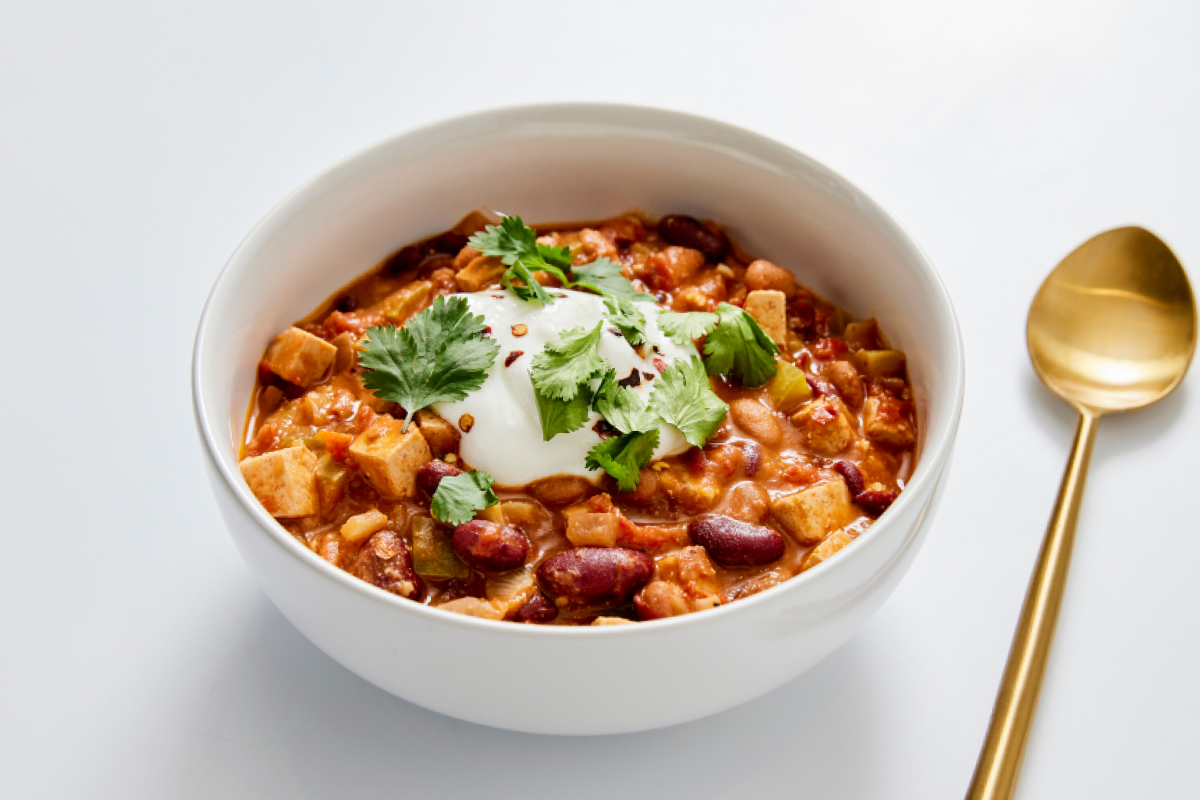Here’s how to enjoy the big game without derailing healthy habits.

As a professional linebacker who played football all over the world, Tonal Coach and certified personal trainer Brendon Ayanbadejo prioritized healthy eating on game day and beyond to help him perform his best. After transitioning out of life as a pro athlete, Coach Brendon knew that proper nutrition was still vital for him to get the most out of his exercise regimen.
“When I was playing football, I did an elimination diet that helped me learn what worked for my body and what didn’t,” he says. “That’s when I really learned how personal nutrition is.”
He discovered that for his body, blueberries were inflammatory, and pork was a better source of protein than chicken.
While microbiome tests are available to deliver personalized nutrition recommendations, Coach Brendon advises people to simply start listening to their bodies. “When you eat something, how do you feel after you eat it?” he says. “My questions to athletes are things like: Did you sleep well? Have you been bloated? Has your stool been regular?” Tracking these markers, he says, can help you pinpoint foods or eating habits that aren’t doing you any favors.
But implementing those learnings can be challenging at times. Like, for example, when you’re gathering with friends for the big game and are faced with loads of tasty but unhealthy foods.
“It’s easy when you’re paid to train and perform, and you have people cooking your meals,” Coach Brendon acknowledges.
Coach Brendon’s Tips for Healthy Eating on Game Day
The good news is that you don’t have to skip out on the party snacks to stay on track. Here, Coach Brendon shares some guidelines for fueling your game-day workout and enjoying your favorite foods during the big game—without derailing your healthy habits.

Fuel up early.
Getting a workout in before the festivities? Maybe you’re the kind of person who rolls out of bed and jumps straight into their workout clothes, skipping breakfast on the way to your Tonal. Game day is not the day for that, especially if you’re taking Coach Brendon’s Big Game High Intensity class. It’s a combo of muscular strength and endurance training that features four muscle-building quarters with a halftime and high-intensity overtime to get you revved up for the game.

“It’s definitely not the workout that you want to come into fasted,” he says.
Fasting has negative impacts on the volume and intensity of your training, according to research published in The Journal of Sports Medicine and Physical Fitness. That means you’re not going to get as much out of every rep Coach Brendon challenges you to perform.
“Ideally, if I’m doing something high-intensity, I’m fueling up several hours beforehand,” says Coach Brendon. Before a game, he used to eat a rice, bean, and sweet potato bowl. It’s a combo of protein and complex carbs, which the body digests and absorbs more slowly to provide sustained energy throughout the day. Another go-to meal is oatmeal with berries and nuts.

Watch your portions.
Listen, on game day, no one wants to swap out their favorite foods for healthier options. And that’s okay—it’s just one day! What you can do is apply a little portion control. “Let’s try everything we like, but let’s limit how much we take in,” he explains. “Instead of two slices of pizza, maybe we have one slice. Instead of 10 chicken wings, maybe we eat three or five.”
Try swapping your large plate for a smaller one. People consumed 77 percent more pasta when using a large bowl compared to a medium-sized bowl, according to a study published in the Journal of Nutrition Education and Behavior. Also, fill up on water before eating. A study published in the European Journal of Nutrition found that drinking two cups of water before meals resulted in less food intake.

Give yourself a cut-off time.
A close football game can go on for what seems like eons, but that doesn’t mean you need to keep snacking on the smorgasbord of food until the final touchdown. “Snack on what you want, but give yourself a cut-off time,” says Coach Brendon. Maybe you cut yourself off after halftime or stop indulging after 8 p.m.
“That’s an opportunity for your body to start digesting and processing all the food you’ve consumed, even if you’ve eaten more than normal,” Coach Brendon explains. “That way, by the time you go to bed, your body’s putting the energy it would have to use to digest towards more important things, like recovering from your workout earlier in the day.” The harder you recover, the harder you can train, so instead of waking up with a post-game hangover, you can keep making gains.
